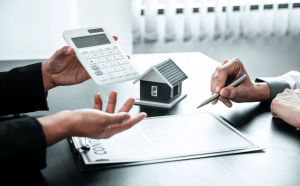Bad Credit in South Africa
The Impact of Bad Credit
If you have bad credit, it could be more difficult to get a loan or other forms of financing, like a mortgage. If you want to buy a house, car or even rent an apartment, being in debt can make it harder for you to do so.
Bad credit can also affect your ability to get certain jobs and insurance policies. For example, if someone with bad credit wants to work as a pilot or take out life insurance, he may not be able to do so because the company will see his poor financial history as risky for them.
If your credit is impaired Real Estate Assist can help you recover financially
What Is Considered Bad Credit?
Bad credit is the opposite of good credit. The Bad credit can be caused by late payments, high balances, or a history of bankruptcy.
That same Bad credit affects your ability to obtain loans and lease cars. It may also affect your insurance premiums and interest rates on any existing loans you have.
If you have bad credit, it doesn’t mean that you can’t get approved for new lines of credit (like a mortgage), but it will most likely cost more in terms of higher interest rates and fees compared to someone with good or excellent credit.
Bad Credit Scores in South Africa
A bad credit score is a score that indicates that you have a history of late or non-payment. In South Africa, it’s important to understand how your credit score affects your life. If you have bad credit, there are several ways to improve it and avoid future problems with lenders.
A good way to check your own personal credit report is by visiting the MyCreditFile website (www.mycreditfile.co.za). This site provides information on checking one’s own credit report, as well as offering tips for improving one’s own score over time and avoiding the need for third party intervention by banks or other financial institutions in order to get approved for loans such as mortgages or car purchases (these types of transactions require extensive documentation showing proof of income such as W2 forms).
If someone has been denied an opportunity due to their bad credit history – whether this occurred recently or several years ago- then they may want reassurance from someone who understands how these things work before making any decisions about what steps should be taken next in order achieve better results next time around!
How to Improve Your Credit Score
There are several steps you can take to improve your credit score, including:
- Pay bills on time. Payment history makes up half of a FICO score and is the single most important factor in determining your score.
- Pay off debt. The less money you owe, the better it is for your credit report and overall financial well-being.
- Don’t apply for too many credit cards at once; this may look like risky behavior to lenders and could hurt your score if you don’t pay off all the accounts when they come due.
- Don’t close unused credit cards; doing so may lower your average age of accounts (another factor in determining creditworthiness), which would result in a lower score.
- Avoid running up large balances on multiple lines of credit; paying down debt every month instead will help keep utilization low (another major component of FICO scores).
Knowing what’s considered good or bad credit can help you make better financial decisions.
It’s important to know what’s considered good or bad credit. It can affect your loan and credit card applications, as well as your ability to get a job. Credit reporting agencies like Experian collect information about you, your debts and payments and other financial information. Then use that data to calculate a “credit score” that predicts how likely you are to pay back loans.
Your credit score is calculated using several factors:
- How much money you owe on all of your accounts compared with the total amount of credit available (or “available balance”) on those accounts;
- How long it’s been since you used any account;
- Whether or not you’ve paid any bills late in the last 24 months;
If one of these measures drops below 600 points (depending on which version of FICO Score is being used), then this means that person has poor credit.
Check Interest Rate Disclosures
You can check interest rate disclosures on your credit card account by checking the official website for your lender. If you get confused, talk with a customer service representative.
What is an interest rate disclosure? It’s basically a summary of all the information about your loan or credit card and how much it’ll cost to borrow money from that source. Think of it like a bill from your doctor. It lists everything from what you’re paying for (the cost of treatment) to when payment is due. (How much time you have left before interest accumulates).
You should look at these disclosures before signing up for any loans or credit cards. They can help you understand whether or not taking out those loans will be worthwhile. They’ll also show how long it’ll take for you to pay off those debts.
If they become too high—which could mean saving yourself tons of money in interest charges!
Set Up Automatic Online Payments
If you are trying to repair your credit, the best things you can do is set up automatic online payments. This enables you to take control of your finances and makes sure that even if you miss a payment, it won’t be too late before you come back on track. You can set up payment reminders to help keep yourself on top of making payments each month.
It also leads to better credit because having good credit will help get finance (such as loans) with lower interest rates, or even get approval for a loan at all!




